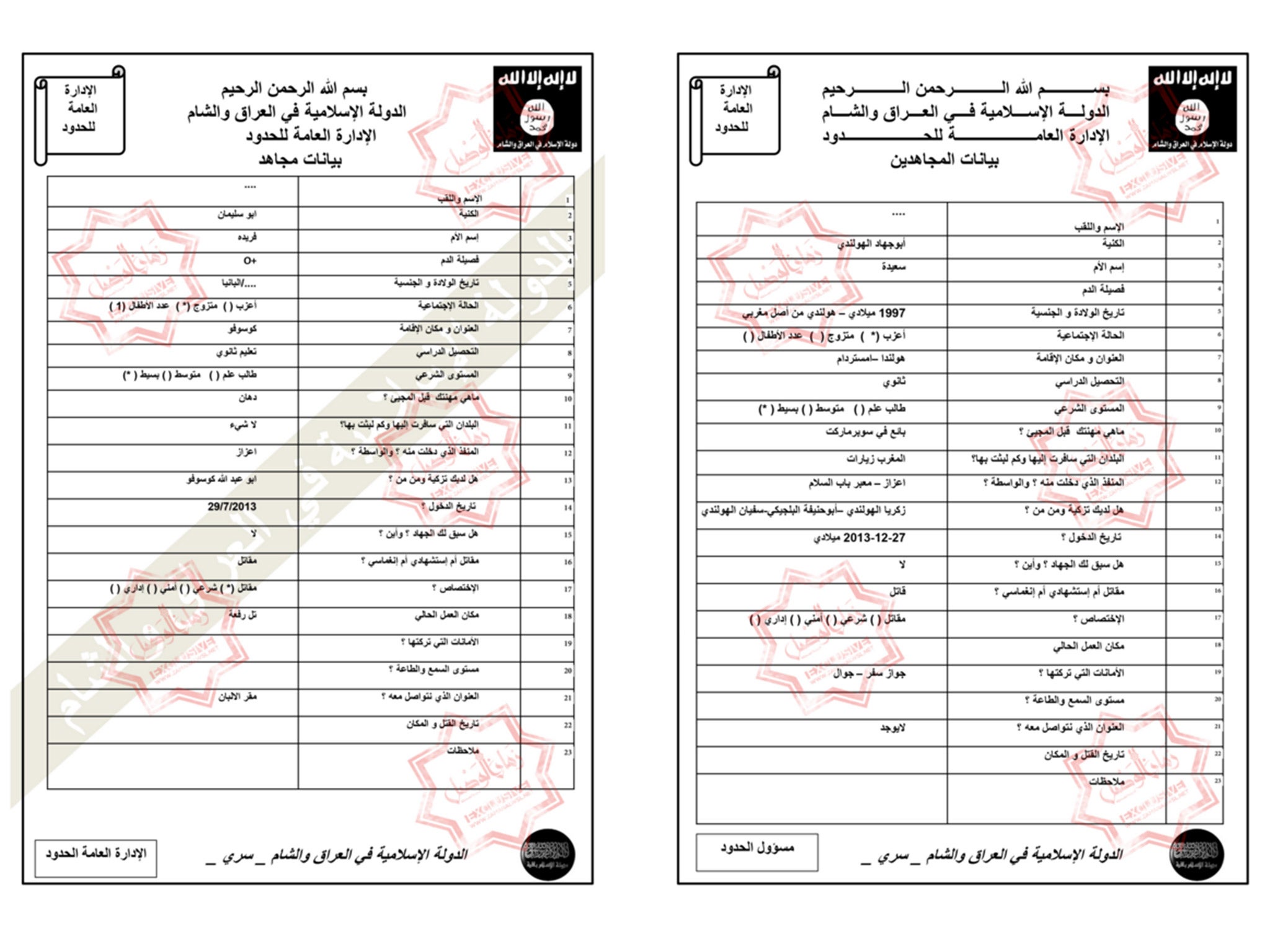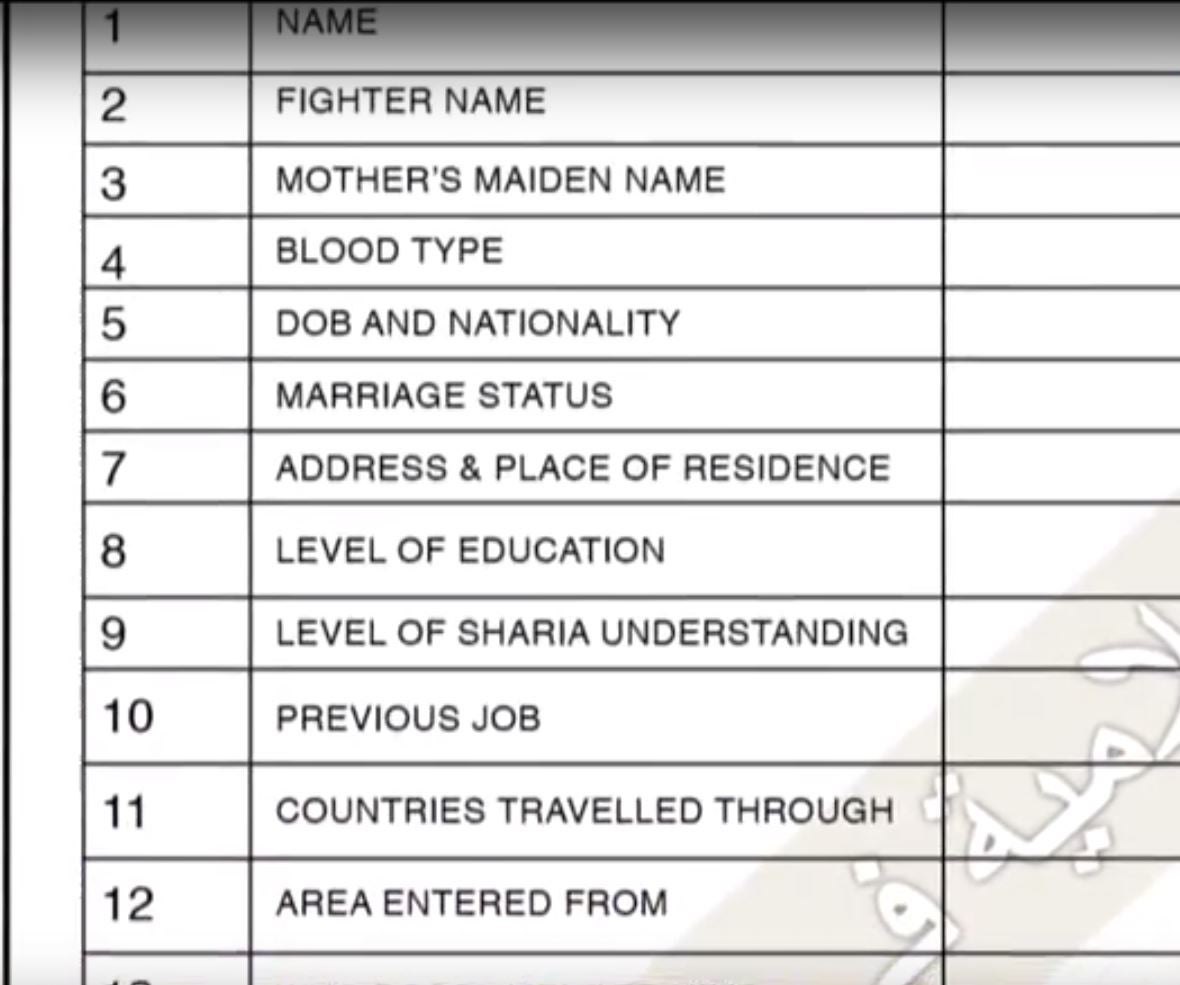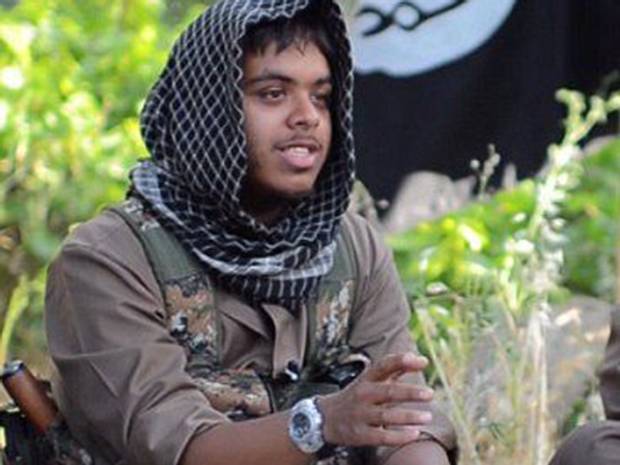Isis files leak will throw terrorist group into 'crisis mode' as thousands of fighters' names and details revealed
Analysts said the huge leak could discourage potential recruits from joining Isis

Your support helps us to tell the story
From reproductive rights to climate change to Big Tech, The Independent is on the ground when the story is developing. Whether it's investigating the financials of Elon Musk's pro-Trump PAC or producing our latest documentary, 'The A Word', which shines a light on the American women fighting for reproductive rights, we know how important it is to parse out the facts from the messaging.
At such a critical moment in US history, we need reporters on the ground. Your donation allows us to keep sending journalists to speak to both sides of the story.
The Independent is trusted by Americans across the entire political spectrum. And unlike many other quality news outlets, we choose not to lock Americans out of our reporting and analysis with paywalls. We believe quality journalism should be available to everyone, paid for by those who can afford it.
Your support makes all the difference.The leak of a huge cache of stolen Isis documents revealing the names and details of thousands of foreign recruits has been hailed as a “devastating" coup for intelligence agencies around the world.
Details of more than a dozen British members were among 22,000 “entrance questionnaires” taken by the so-called Islamic State’s border authority in 2013.
Zaman Al Wasl, a pro-opposition Syrian news website, and Sky News published a selection of the forms online showing a 23-part survey detailing extremists’ names, birth dates, nationalities, hometowns, nationalities and even blood types.

The forms show prospective members were asked to choose if they wanted to be used as suicide bombers, soldiers or in another role, and to detail any previous jihadist experience.
Afzal Ashraf, a visiting fellow at Nottingham University’s centre of conflict, security and terrorism, told The Independent the leak will be “devastating” for the terrorist group.
“It will be a great blow for their recruitment process because these documents show not just the people joining but the networks involved in radicalising them and facilitating their travel,” he said.
“Any recruit will know they are very likely to be discovered and there will be serious consequences for them, it doesn’t inspire a great deal of confidence.”
Mr Ashraf added that claims a disillusioned Isis member leaked the files could spark damaging internal purges, executions and in-fighting.
“It will cause a great deal of disruption,” he added. “This is the worst news for Isis in a very long time.”

Charlie Winter, a Senior Research Associate at Georgia State University, called the latest forms “a truly remarkable intelligence haul”.
But he cautioned that the unprecedented release of names, telephone numbers, mothers’ maiden names and addresses may deter Isis fighters from defecting in fear of jail or retribution.
“It could deter potential defectors because they will feel they have got no chance of going home without being imprisoned now the world and his wife has seen everything about them,” Mr Winter told The Independent.
“I think that would be a bad thing, but on the other hand the documents provide a great deal of insight.”
Security expert Will Geddes, who founded International Corporate Protection, told The Times the resource will provide “vital pieces of the intelligence jigsaw” for security services cross-checking their own information.
“They will be in massive crisis mode, worried about what is in there, who is in there and how it will disrupt their activities,” he said.
Richard Barrett, the former global terrorism operations director at MI6, said the documents would shed “invaluable light” on who was joining Isis in the period and why.
“It's a fantastic coup,” he told Sky News. ”And it will be an absolute goldmine of information of enormous significance and interest to very many people, particularly the security and intelligence services.”
Mr Barrett said the leak was the largest since the “Sinjar records” were released in 2007, giving the names of around 700 Isis fighters in Iraq, all of whom were from Arab countries.
While some of the fighters named were already known, including prominent British members Abdel Bary, Junaid Hussain and Reyaad Khan, many more are expected to be new to security services.

Zaman Al Wasl’s report claimed the personal details of 1,736 fighters from 40 countries had been revealed, showing that a quarter were Saudis and the rest predominantly Tunisian, Moroccan and Egyptian.
Most of the European extremists listed were from France, followed by Germany and the UK. Four were said to be from the US and six from Canada.
Timothy Holman, who translated part of the cache into English, said the documents were collected at border crossings into Isis territory between November and December 2013.
Sky News said it obtained its files on a memory stick stolen from the head of Isis' internal security police by a former Free Syrian Army fighter who defected to the "caliphate" but became disillusioned.
Security sources have told The Independent the documents appear to be genuine, although they have not been publicly verified.
The Home Office said it was “aware” of the report, while the leak also matched descriptions of material being investigated by security services in Germany.
“Any jihadist who crosses the Islamic State's borders for the first time is made to acknowledge to the Borders Administration everything about himself, even what he wants to be in Isis - a fighter or a suicide bomber,” Zaman Al Wasl reported.
A spokesperson for the Home Office told The Independent it was “aware” of the apparent leak but said he could not give any further information for security reasons.
“Individuals who take part in the conflict in Syria or travel to Isis territories are subject to investigation and should expect to be prosecuted on their return,” he added. “Any evidence will be considered.”
At least 700 people from the UK have travelled to support or fight for jihadist groups in Syria and Iraq, according to police, and about half have since returned.
Join our commenting forum
Join thought-provoking conversations, follow other Independent readers and see their replies
Comments